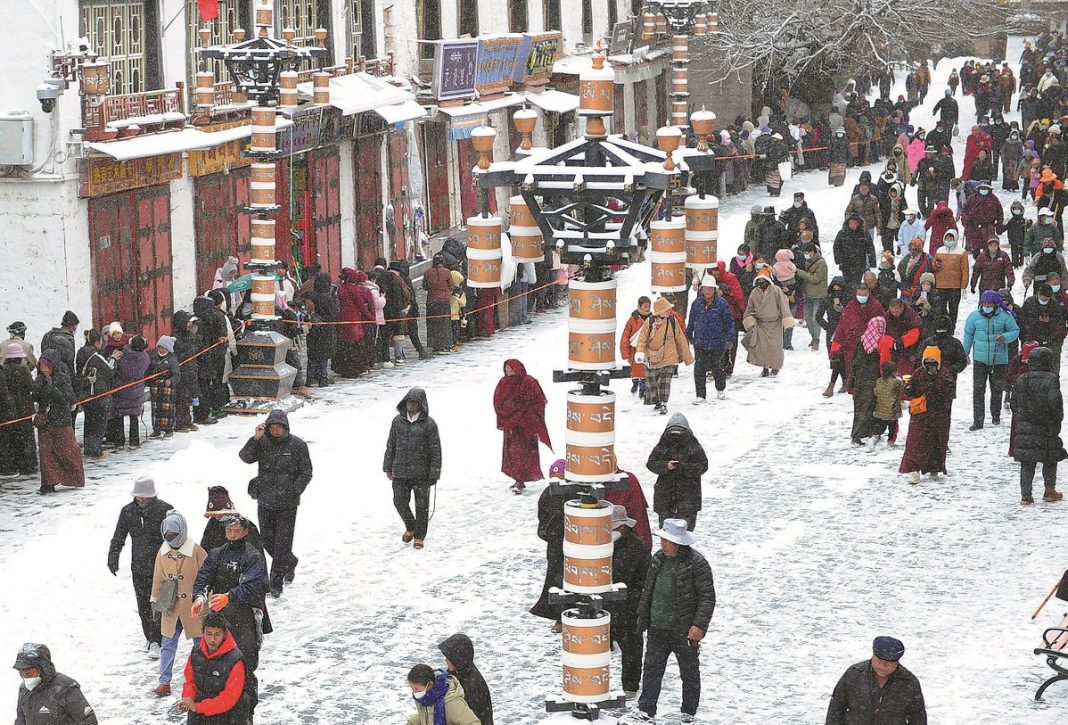BEIJING: The first major cold front of the new year is set to sweep across central and eastern parts of the country from Saturday, with average temperatures expected to fall by as much as 14 C, according to the China Meteorological Administration.
In Xining, Qinghai province, for instance, the maximum temperature, which was around 6 C on Wednesday, is expected to drop to — 5 C by Sunday.
Similarly, in Datong, Shanxi province, the maximum temperature of 1 C on Wednesday will decrease to — 11 C by Sunday.
Ma Xuekuan, chief forecaster from the National Meteorological Center, said the cold front is likely to persist until Tuesday next week.
In regions like the Inner Mongolia autonomous region, extreme snowfall is expected, he added.
Widespread and intense snowfall is expected in southern regions, Ma said, adding that Guizhou, Yunnan, Hunan and some high-altitude regions in Guangdong province might experience freezing rain.
Similar to the extreme cold front in December, freezing rain is expected to be a notable feature in this cold wave, the center said.
Chen Jingjing, chief forecaster at the Hunan Meteorological Service, said that from this weekend, the province will be affected by the cold front, leading to widespread heavy snowfall.
In some areas of central Hunan, there may even be severe snowstorms, with snow depths exceeding 10 centimeters.
Hu Xiao, chief meteorologist at Weather China affiliated with the CMA, said this shift in weather patterns will not only bring an end to the warmer-than-average temperatures experienced since January but will also trigger significant snowfall in southern regions, marking the most intense snowfall of the winter this far.
This winter has witnessed a recurring pattern of drastic temperature changes. Shifts between unusually high temperatures and extremely cold temperatures are becoming almost routine, he said.
Particularly since the sanjiu period — the third nine-day period after the winter solstice when the temperatures are usually at their coldest — temperatures across the country had been 2 C to 4 C higher than usual, he said.
December saw a sudden warm spell, followed by the arrival of a harsh cold front in the latter part of the month, bringing frigid temperatures. January, in contrast, has exhibited an unusual warm spell, only to be followed by a mid-month cold wave, Weather China said.
Record-breaking warm and cold temperatures underscore the consequences of climate change, proving that more extreme weather is occurring, Weather China said. –The Daily Mail-China Daily news exchange item






